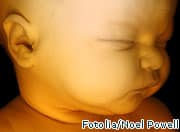Britain’s largest abortion provider is set to go to the High Court in a controversial bid to allow women to abort their pregnancies whilst at home.
BPAS, formerly the British Pregnancy Advisory Service, is seeking to change the interpretation of the law so that women in the first nine weeks of their pregnancy can take the second set of drugs necessary to induce an early medical abortion (EMA) whilst at home.
But the proposal has alarmed critics who believe that such a move would trivialise the procedure and ignore the dangers.
Abortion
A spokesman for the pro-life charity Life said: “Clearly BPAS’ intention is to increase access to abortion yet further, by making it little more than a pill-popping exercise.
“The psychological and physical health of women will be compromised should this High Court challenge succeed.”
And Paul Tully, general secretary of the Society for the Protection of Unborn Children, said: “Abortion is an appalling ordeal for women, as well as the killing of an unborn child.
“BPAS is trivialising abortion and jeopardising women’s welfare.”
Pregnancy
Early medical abortions, which can be carried out in the first nine weeks of a pregnancy, are induced by taking two sets of tablets between 24 and 48 hours apart.
These pills must currently be taken under medical supervision at either a clinic or hospital, but if BPAS succeeds women would be able to take the second pill at home.
BPAS, which is a registered charity, claim that the second trip to take the pill on medical premises is “medically unnecessary”.
Contested
And Ann Furedi, the charity’s chief executive, has defended their campaign, saying: “Abortion services must comply with the law. But, within that, they should be shaped by best clinical practice.
“It is wrong to compromise women’s care through unnecessary restrictions imposed by officials who fear criticism from those who oppose abortion in principle.”
The case, which is due to be heard on 28 January, is being contested by the Department of Health.
Gerbil
In 2008 Mrs Furedi admitted that the embryo is a human life, but claimed that its value is “relative” to the wishes of its mother during a debate in Oxford.
The question, Mrs Furedi argued, was “not, when does human life begin? but, when does it really begin to matter?”.
This, she said, could only be weighed up “as being relative to the woman who is carrying it”.
She admitted that “the embryo is a living thing”, and that it “is clearly human in the sense that it’s not a gerbil”, but stopped short of according it the same status as “a born person”.
Tripled
Last April it was revealed that the number of NHS trusts planning to or already offering early term abortions in GP surgeries had tripled in the past year.
A publication for doctors, GP magazine, revealed that 17 health trusts were either offering or were planning to offer abortions for women up to nine weeks pregnant.
During 2009 a staggering 195,743 abortions were performed in England and Wales, with a further 13,005 terminations being performed in Scotland.
Multiple
And last year the NHS released new statistics revealing that tens of thousands of British women are having multiple abortions.
The official stats revealed that, of the abortions carried out on women resident in England and Wales, 63,309 – 34 per cent of the total – were for women who had previously had at least one abortion.
Of the abortions carried out in Scotland, this figure stood at 3,658, accounting for 28 per cent of the total.

